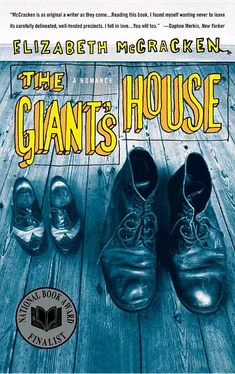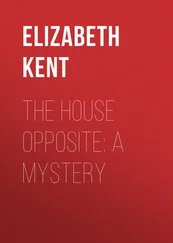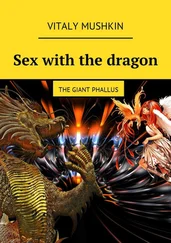And then, though he was sitting on a perfectly fine bed in a perfectly fine room, he stood up and walked away to his own. He was just a boy; he didn’t know not to leave a woman crying in bed. “I’ll see you in the morning,” he said, and then nervously, tentatively, disbelievingly, “Sweetheart.”
The rest of the circus performances went better than the first, partly because Leila advised James to wait till she hit the ground, then stand up very slowly. She wanted him to pick her up, too—“I’m so light you wouldn’t believe it”—but he was afraid for his balance. Instead she leaned against him off her platform, put her hand on his shoulder, and whispered in his ear. He told me later she said, “Shall I step off? Shall I step off? When we get married, this is how we will go down the aisle.”
We were engaged. That’s what I told myself, though we didn’t discuss marriage again. Not in New York. Not when we got back home. I thought about it nearly all the time, but I could not bring the subject up myself. I was terrified he’d say, oh that. That was just an idea I had, a bad one . Or perhaps, didn’t you know I was sleepwalking? The words themselves, okay, let’s get married , felt like a bomb in my throat, a bomb I felt like pitching through windows, into living rooms, up through the glass floors of the library, knowing it would explode everything. What would Oscar and Caroline say if I approached them, asking their nephew’s hand in marriage? What would the town say if we applied for a license? At best I’d be met with laughter; at worst by plain refusal. Even the basic facts: a thirty-three-year-old woman and the nineteen-year-old she’d known since he was a child. You cannot have this , they’d say. Maybe this is all you’ve ever wanted, but we’re sorry. Think of how it would look .
So I held on to my bomb, a Molotov cocktail I could taste, sweet like a cocktail in my throat as long as I kept it there.
It wasn’t until we got back from New York that I saw how much the trip had taken out of James. I don’t think he’d seen it either. In New York he had been busy with people and busy with his camera. He wanted to make sure he’d taken enough pictures; even as we pulled out of the city, he clunked his lens against the glass and snapped a photo. “To show Aunt Caroline and Uncle Oscar and Alice,” he said, though of course it was more. I understood, finally: tourists do not take pictures as souvenirs. They want to assemble a new country to tour later, they outfit it with the best parts of the last place: this doorway, that rough-bricked street, a straw-hatted horse, a cheese shop, an empty bedroom. Some want their families there and include them in so many vistas that their new flat world is entirely populated by crowds of the wife and children. The photographer is native and stranger in his glossy dream city, invisible but significant, as natives and strangers often are.
Once home, James started to sleep late. He told me he stayed up until four in the morning and got up at two in the afternoon. He took naps in between.
“Do you feel all right?” I said. “Perhaps you should see a doctor.”
“I need to rest, is all,” he said. “I’ll be fine.”
I myself was an early riser. I couldn’t help it. Two Sundays a year I would manage to sleep until ten, and then I felt as though I’d wasted most of the day.
Now, though, my day couldn’t start until I knew James was awake in his house across town. His being asleep so much of the day felt like a terrible absence to me, although weekdays I never saw him until after five anyhow. Asleep, he was not really in the world. I’d have been up since six, as always, had washed my face and dressed and neatened my apartment and walked to the library; I’d have emptied the book drop and refilled the scrap paper holders and perhaps catalogued some books; I’d have checked items in and out, dispensed advice and collected fines and kept myself busy in all the usual ways, but the day could not really begin, was not really a day, until two-thirty when James was sure to be awake and there was a possibility he was thinking of me.
He might phone; he sometimes did, to ask me a question or request a book. We’d put in a phone line at the cottage at last, to save the Stricklands from answering calls all day. He might pick up a book I’d brought him and think of me — wouldn’t he have to? Now he was reading Dickens, one fat volume at a time. I’d planted myself in as many ways as possible in his house, in the record player and records and boxes of the kind of bulky pens he liked; in the loaves of bread I bought him and the articles I clipped from newspapers. Every day he’d have to deal with at least one object whose presence in his life was my doing.
At night I tried to keep myself awake, because he was awake. That we were not in the same room or building made no difference. Perhaps he was in the big armchair; the telephone was on the table next to it. He used a pen to dial, like a lady with an elaborate manicure. Perhaps he was reading, or writing, or painting. Was he thinking of me now? How could I go to bed?
But I couldn’t stay awake that late. I listened to the radio, to the talk shows he favored; I thought that way we might be thinking the same thing at the same time. I read. I lay across my bed fully clothed, with all the lights on, in case he called, so that I could tell him, no, I haven’t gone to bed yet . Sometimes I phoned him those late nights, pleading insomnia.
“I knew you’d be up at this hour,” I said.
And we’d talk, and he almost always ended the conversation the same way: “Well, if you’re still awake later, feel free to call. I’ll be up for a while yet.”
Whether he said this out of pity for my imaginary insomnia or really wanted me to call, I don’t know. Anyway, I never could stay up later, even though I sometimes set my alarm clock for three-thirty A.M. I slept right through it and finally had to stop trying when Gary, my landlord, said he could hear it through the floor.
“You can call me, too,” I told James those nights. “You feel free, too.”
But he never did.
Alice, who was three, picked out a kitten for James from a box in front of the supermarket. Caroline had told her she could have one, and Alice insisted on both a white-and-black cat who looked like he was wearing a toupee, and a dark calico. James got the calico. Oscar suggested Peggy as a name, but both James and I were revolted by the idea.
“It’s a compliment,” Oscar said.
“All I need” I said, “is to hear ‘Peggy ruined the upholstery on that chair. Have you cleaned Peggy’s litter box? Peggy kept me awake all night coughing up a hairball.’ ”
“I get the point,” said Oscar.
So we called her Kazoo, because though she was only three months old, she already had a nasal, scratchy voice, a smoker’s meow. We did not get along, much to the delight of everyone else, especially James. He liked to imagine that Kazoo spent her catnaps dreaming of ways to torment me.
“She doesn’t see herself chasing mice,” he said. “She sees herself chasing Peggy.”
Oscar had decided to start an art school by mail. He’d gotten this idea from James, who was taking a correspondence course from a school in Vermont. Now that Alice was three, only a little tall for her age and pretty, her father no longer feared sudden giantism; by the time James was her age he was already enormous.
Oscar asked James for advice. “How much is too much for one lesson? How do you think I should grade?”
“People are going to send you paintings in the mail?” I asked. “Won’t that get expensive?”
“No, just cartoons. I’ll specialize in cartoons — everybody wants to do comic books. So, Jim: start with funny characters, move onto serious? Vice versa?”
Читать дальше












